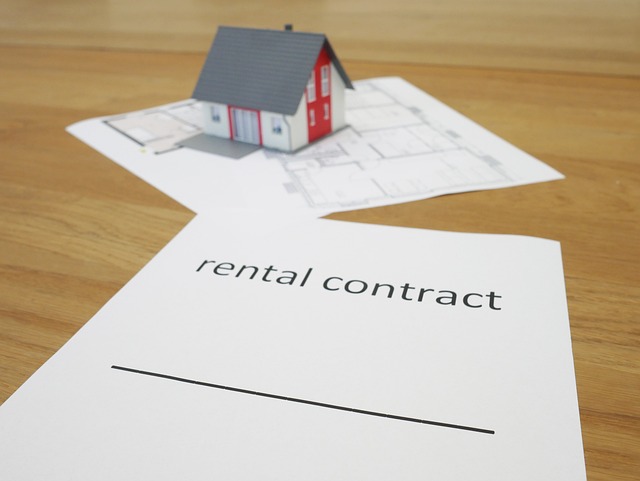Save Money on Rent : How No Deposit Studio Apartments Work
Renting without a deposit can cut upfront costs, but it’s important to understand the process. No deposit studio apartments are designed to make moving more affordable, yet they often come with specific requirements from landlords. This article explores how these rentals work, the conditions that might apply, and the key differences compared to traditional lease agreements. By understanding eligibility criteria, potential fees, and common pitfalls, renters can approach the housing market with greater confidence and avoid unexpected surprises before signing a lease.

How do no deposit studio apartments reduce upfront moving costs?
No deposit studio apartments, as the name suggests, allow tenants to move in without paying a traditional security deposit. This arrangement significantly reduces the upfront cost of moving, making it easier for renters to secure housing without depleting their savings. Instead of a lump sum deposit, tenants might pay a small, non-refundable fee or agree to slightly higher monthly rent. This approach can free up funds for other moving expenses, such as furniture purchases or utility setup fees.
Who is eligible for no deposit rental arrangements?
Eligibility for no deposit studio apartments varies depending on the landlord or property management company. Generally, prospective tenants need to meet certain criteria to qualify for these arrangements. Factors that may influence eligibility include:
-
Credit score: A good to excellent credit history often demonstrates financial responsibility.
-
Income verification: Proof of stable employment and sufficient income to cover rent payments.
-
Rental history: A positive track record with previous landlords can be advantageous.
-
Background check: Clean criminal and eviction records are typically required.
Some property managers may offer no deposit options to attract tenants in competitive rental markets or to fill vacancies quickly.
What conditions do landlords commonly set for no deposit rentals?
While no deposit studio apartments can be appealing, landlords often set specific conditions to protect their interests. Common stipulations may include:
-
Higher monthly rent: To offset the risk of potential damages or unpaid rent.
-
Non-refundable fees: One-time payments that serve as an alternative to a traditional deposit.
-
Mandatory renters insurance: To cover potential damages or liability issues.
-
Stricter lease terms: More rigorous rules regarding property maintenance and timely rent payments.
-
Shorter lease durations: To allow for more frequent tenant evaluations.
It’s crucial for renters to carefully review these conditions and understand their obligations before signing a lease agreement.
What are the risks of no deposit arrangements, and how can tenants avoid pitfalls?
While no deposit studio apartments offer financial advantages, they come with potential risks for tenants:
-
Higher overall costs: The cumulative effect of increased rent or fees may exceed a traditional deposit over time.
-
Limited financial protection: Without a refundable deposit, tenants may have less incentive to maintain the property.
-
Stricter enforcement of lease terms: Landlords may be less forgiving of late payments or minor infractions.
To avoid pitfalls, tenants should:
-
Calculate long-term costs: Compare the total expense of a no deposit arrangement against traditional leases.
-
Read the lease carefully: Understand all terms, conditions, and potential penalties.
-
Document the property’s condition: Take photos and note any existing damage before moving in.
-
Maintain open communication: Address any issues promptly with the landlord or property manager.
What should new renters consider when choosing a no deposit studio apartment?
For those new to renting, especially in a no deposit scenario, consider the following checklist:
-
Budget analysis: Ensure the monthly rent and any fees fit comfortably within your budget.
-
Location assessment: Evaluate the apartment’s proximity to work, amenities, and public transportation.
-
Utility responsibilities: Clarify which utilities are included in the rent and which are tenant responsibilities.
-
Apartment condition: Inspect the unit thoroughly before moving in and report any issues immediately.
-
Lease duration: Consider whether a short-term or long-term lease better suits your needs.
-
Building security: Assess the safety features of the apartment and building.
-
Maintenance policies: Understand the process for reporting and addressing maintenance issues.
-
Community rules: Familiarize yourself with any regulations regarding guests, noise, or pet policies.
| Provider | No Deposit Option | Additional Fees | Monthly Rent Range |
|---|---|---|---|
| Avalon Communities | Yes | Administrative fee | $1,200 - $1,800 |
| Equity Residential | Yes | Move-in fee | $1,100 - $1,700 |
| Camden Property Trust | Yes | Application fee | $1,000 - $1,600 |
| Greystar | Yes | Reservation fee | $1,300 - $2,000 |
Prices, rates, or cost estimates mentioned in this article are based on the latest available information but may change over time. Independent research is advised before making financial decisions.
No deposit studio apartments offer an innovative solution for renters looking to minimize initial moving costs. By understanding the eligibility requirements, landlord conditions, potential risks, and essential considerations, tenants can make informed decisions about whether these arrangements align with their financial goals and living preferences. While the reduced upfront expenses can be attractive, it’s crucial to weigh the long-term implications and ensure that the terms of the lease provide a fair and sustainable living situation.




